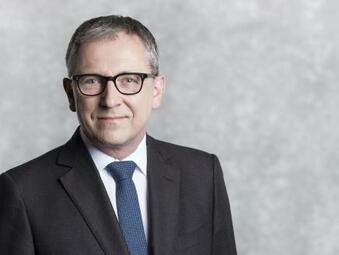Development of the “Mannheim 2030” model successfully started with Urban Thinkers Campus
– foundation stone laid for a sustainable Mannheim 2030 – In total, 500 participants at three conference days
Ladies and gentlemen,
The Mannheim Urban Thinkers Campus was a great success and showed how significant municipal sustainability is in the globalised world. There were many inspiring ideas for the future of our city, for Mannheim 2030 in the globalised world. With the Urban Thinkers Campus, the task lies with us to create further processes and continue to work on the results of the congress. It is important to me that all groups of the Mannheim urban society take part in the next development of the “Mannheim 2030” model and that they really get involved. The results from the Urban Thinkers Campus 2017 are given in this brochure. I would like to thank all participants for their commitment to Mannheim.
Since January 2016 the 17 Sustainable Development Goals of the United Nations oblige all countries of the world to implement sustainability strategies. A significant factor in this will once again be the municipal level. The maxim “Think global, act local” is more important than ever. Active in environmental, economic and social areas of activity we are facing our responsibility as an urban society living through globalisation and using resources carefully. This relates to subjects such as efficient budget planning, consumption of food products, use of water, energy and other commodities as well as peaceful co-existence in a culturally device city. The Mannheim Fairtrade Town Process is of equal significance due to its global effect as is the development of our international relationships. A particularly dynamic subject is “Smart City Mannheim”. From the medical technology business cluster through to the new urban mobility services and on to “Industry 4.0” our future life and the development of the city are linked together in significant areas.
Sincerely
Your Lord Mayor,
Dr. Peter Kurz
Here are the key results:
Urban Lab for urban development:
Mannheim needs space for civic interaction and social contact. To do this, the available areas and potential areas such as the Rhine and Neckar rivers must be used better and more sustainably from an environmental point of view.
Urban Lab for Mobility:
Because humans are mobile, they create mobility. Sustainable, post-fossil forms of mobility must be strengthened and sustainable urban mobility must be affordable for everyone.
Urban Lab for Smart City:
The digital-based intelligent networked infrastructure must be improved and it must be possible to incorporate OpenData projects. Data security and protection must be guaranteed. The stakeholders and the knowledge in the city must be connected. A smart city must also be accessible and usable for everyone.
Urban Lab for Entrepreneurship and Public welfare economy:
Common platforms exist and must be opened up. The consumption by urban society must be more sustainable and this must be strengthened through incentive schemes. The student organisations located in Mannheim should be supported as Social Entrepreneurs.
Urban Lab for Co-Creation und Sharing:
Sharing is a social concept where people support each other. This must be encouraged, and economic approaches are also welcomed.
Special panel for the multi-purpose hall:
The multi-purpose hall can be a fresh impetus for meetings and innovations in the urban society. Social utilisation concepts need to be developed taking the neighbourhood into account. Can the multi-purpose hall strengthen municipal democracy as a space for new types of participation and civic involvement?
Urban Lab for democracy and urban society:
Study and experience democracy through democratisation of surrounding institutions (e.g. schools). Meeting centres for democracy must be created in order to promote democracy on a mutual basis. Through straightforward language, the integration of groups which were not able to take part before should be encouraged. Democracy requires trust and a change of perspective, and this in turn needs areas where it can grow.
Inclusion and accessibility:
There must be connections which mean that everyone is on board and nobody is left behind. Barrier-free communication by using language which is understandable, straightforward and clear is necessary. Barrier-free “Design for all” e.g. for building construction must be further encouraged. Indicators for increased awareness of concerns from minority groups must be established.
Indicators, implementation and monitoring:
Transparent reporting about goals and successes of indicators and straightforward communication paths between the citizens und city administration are necessary. Through continuous evaluation, monitoring and further development of the indicators, the process for measuring success comes to life. Detailed review of city areas is important for the overall evaluation at an indicator level.
Municipal development policy:
The mutual learning between the partner cities and Mannheim should be expanded. In this respect, educational work should be developed together as an option for action. Migrants should be active as development ambassadors between the partner cities.
The Urban Thinkers Campus is an initiative of the United Nations which aims to encourage sustainable, urban development. It serves as an open space for the interaction between local and international experts. In addition the UTC provides input for social development at a global level. The Urban Thinkers Campus is hosted by the city of Mannheim. The event was supported by the German Federal Ministry for Economic Cooperation and Development, the Service Agency for Communities in One World and Global Engagement as well as the World Urban Campaign.


